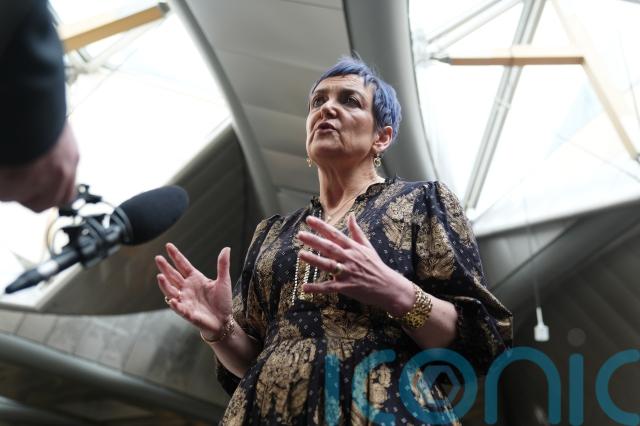
New moves to release prisoners early from Scotland’s jails will not “address any of the root causes” of overcrowding, ministers have been told.
HM Chief Inspector of Prisons for Scotland, Sara Snell, said while the latest wave of releases was “necessary to reduce the immediate pressure” inside institutions, it would not provide a long-term solution.
She told how Scotland’s prison system is currently “struggling to cope with the number of prisoners it is now being asked to accommodate”.
And while Justice Secretary Angela Constance has announced plans for another wave of early releases, starting next month, Ms Snell told ministers that previous release schemes had not been a remedy for the problem of over-population in Scotland’s jails.
She spoke out on the issue after the number of prisoners reached a new record high of 8,430 on Tuesday last week.
Ms Snell said that prison inspectors had supported two previous moves to reduce the number of inmates: an emergency release scheme which started in June 2024; and a change in the law to free short-term prisoners after just two fifths of their sentence, which came in in February 2025.
The inspector said that while these had provided “necessary short-term breathing spaces”, they were not fixes for the problem of over-population.
She added: “We see the further planned early release in November as necessary to reduce the immediate pressure in Scottish prisons today, but it does not address any of the root causes of the problems.”

Scotland’s jails currently have an operating capacity of 7,805 prisoners, and Ms Snell spoke out about the “long-standing pressure” caused by having a prison population that has “consistently exceeded ” this – saying it has had a “long-term toll” on prison staff, governors and staff at Scottish Prison Service (SPS) HQ.
“There are no quick or easy answers to the challenge of a prison system where overcrowding has become deeply entrenched,” Ms Snell added.
She also said: “It is vital longer-term solutions are adopted swiftly to avoid more short-term options being resorted to and because long-term systemic change takes time to take effect.”
Her comments came in the wake of SPS chief executive Teresa Medhurst warning that levels of overcrowding now meant there are “very serious concerns around our ability to keep people safe and secure”.
Justice Secretary Angela Constance accepted that the prison population was at such a level that “immediate action is now required”.
She said the forthcoming early release scheme would “run for a longer period” – with ministers having planned for five tranches of releases, from November 11 this year, running through to April 30 2026.
Offenders serving a sentence of four years or less, who are within 180 days of their original release date, will be considered for early release as part of that – though no-one who has been jailed for sexual offences or domestic abuse will be freed, and prison governors will be able to veto the release of anyone they deem to present an immediate risk.
Ms Constance stressed prisons would always be needed to deal with those offenders who “pose the greatest risk”.
But, speaking on BBC Radio Scotland’s Good Morning Scotland programme, she added that the rising number of long-term prisoners meant that “different decisions” may require to be taken for short-term prisoners.
She said the Scottish Government is “investing more in community justice, because community justice in many instances is more effective in reducing reoffending”.
The Justice Secretary added Scotland needs to “start following the evidence… about what works to keep our communities safer”.
Subscribe or register today to discover more from DonegalLive.ie
Buy the e-paper of the Donegal Democrat, Donegal People's Press, Donegal Post and Inish Times here for instant access to Donegal's premier news titles.
Keep up with the latest news from Donegal with our daily newsletter featuring the most important stories of the day delivered to your inbox every evening at 5pm.